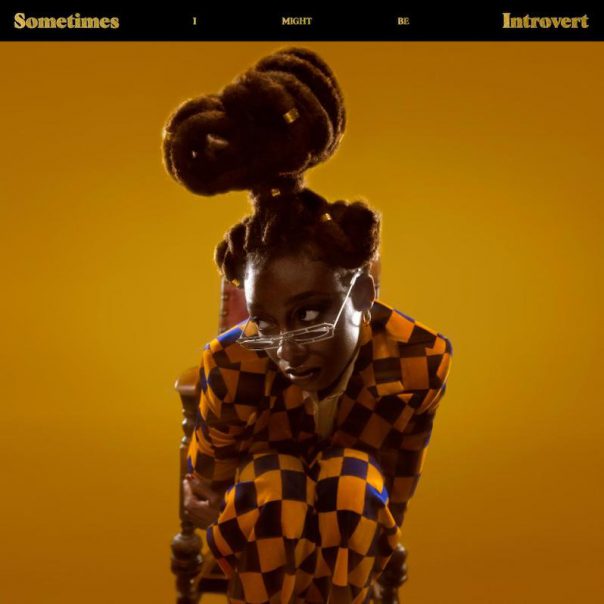REVIEW: Little Simz pulls back the curtain on ‘Sometimes I Might Be Introvert’

Self-reflection has been a critical part of the last year and a half for many first locked down with nowhere to go then worn down by an onslaught of crises. Looking inward became inevitable. English rapper and actress Little Simz (Simbiatu Abisola Abiola Ajikawo) makes self-examination and explanation the focal point of her fourth album, Sometimes I Might Be Introvert. Coming off the critical acclaim of 2019’s GREY Area and last year’s Drop 6 EP, Little Simz is proving to be a groundbreaking voice in British hip-hop.
Sometimes I Might Be Introvert
Little Simz
AWAL, Sept. 3
9/10
The album is a vehicle to explore her introverted personality. Much like Polo G’s Hall of Fame, it plays like a personal journal. It’s rooted in existential matters that range from Ajikawo’s upbringing, mental health, sociopolitical observations and more, coming to define who she is.
Sometimes I Might Be Introvert opens with “Introvert” as marching snares with a prominent bass and choir usher listeners into her headspace. The pace switches up suddenly into a swinging tempo with orchestral strings. Little Simz tackles how corrupt governments are complicit in maintaining the structures that ruin lives, while taking solace in her own identity to fight back against such a system. The song concludes with a spoken-word piece from friend and fellow actress Emma Corrin. Cleo Sol also provides vocals on “Introvert” as well as the next track, “Woman,” led by an organ and snappy snares. Simz’s verses are a celebration of Black women around the globe, and the multitude of cultures they come from and contribute to.
“Two Worlds Apart” takes a hard left into a ’70s-funk-inspired number, with light electric guitar flourishes over a thick bass riff. Little Simz raps about feeling gradually disconnected from her followers, her friends and her family as she sees her stardom grow. “I Love You, I Hate You” opens with harp and horns, only to transition into a much harder cut with a heavy bass melody punctuated with snare. Ajikawo tears into her issues with her father while also criticizing the superficial relationship artists tend to have with their audiences.
Little Simz delivers another banger with “Speed,” its minimalist buzzing bass melody with garage-y snares sees her dominating her lane in hip-hop as a lyrical powerhouse. “Standing Ovation” emphasizes the album’s overall orchestral sound, with woodwinds and brass, and a snare hitting tempos fit for a b-boy beat. There’s some clear influence from Tyler, the Creator between the beat switch in the middle of the song, while Simz weighs the motivations behind artists as a whole and whether work has any genuine meaning behind it.
We get a glimpse at her more tender and vulnerable moments on “I See You,” where she finds herself deeply isolated and in need of emotional support. The song is enhanced by an acoustic guitar and bass melody and shimmering backing vocals. “Protect My Energy” revives the funk of “Two Worlds Apart” but with synths and ambient tones, as Little Simz sings about her desire to not be patronized for expressing her struggles. We get another minimalist instrumental on “Point and Kill,” with a bass-led melody and plinking snare as she raps about how nobody can tell her how to live her life. Not her family, her peers or even the temptations of the devil himself could sway her from the path she’s chosen. Her confidence radiates like the sun, which is followed nicely with the bouncy and celebratory “Fear No Man.”
The album concludes with “How Did You Get Here” and “Miss Understood,” the former a deep existential cut reflecting on how Ajikawo’s life circumstances informed her character and how amazed she is at managing to succeed. The latter reexamines her isolation from the people around her and the world at large—almost as if she lives in her mind more than on earth itself. Both are piano-led instrumentals that match the tone of the songs and the overall album appropriately. It’s a fitting close to this meditation on who Little Simz really is.
Follow editor Tim Hoffman at Twitter.com/hipsterp0tamus.
